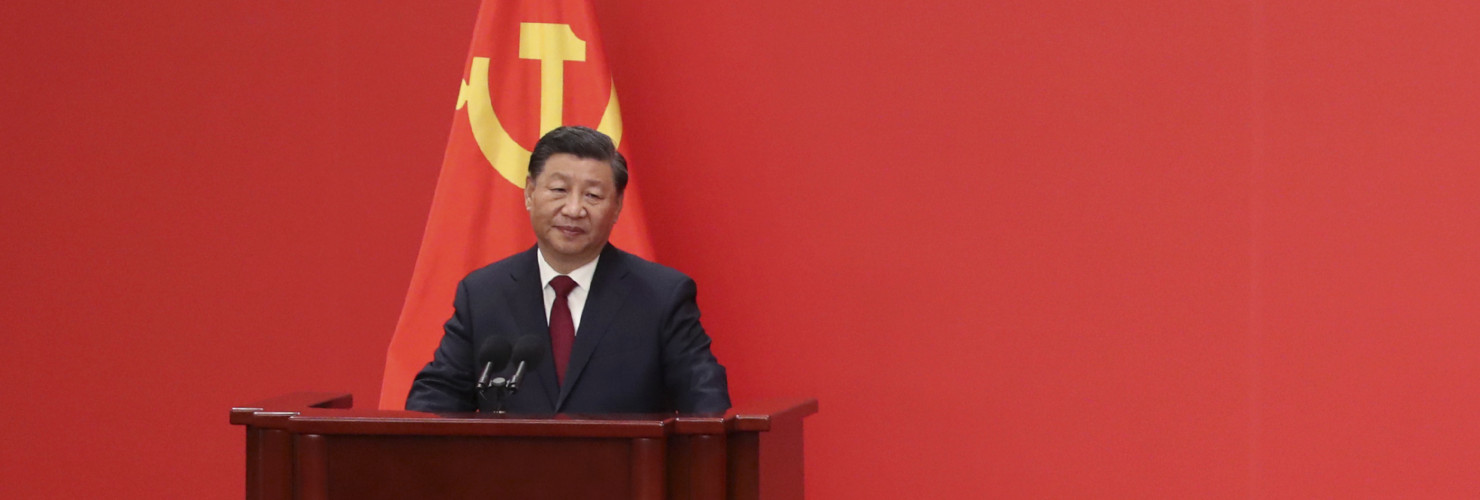

Xi’s Chinese-style modernization: tactical flexibility and ideological steadfastness
Xi Jinping’s recent policy reversals turn out to be tactical compromises and reactions to crises. China’s party and state leader still sticks to his strategic targets and is pushing China's rise as an alternative world power, says Johnny Erling.
After party leader Xi Jinping succeeded in achieving almost all of his programmatic and personnel policy goals at the 20th Party Congress and extended his term as CCP leader, he initially appeared to be pursuing a pragmatic course. Beijing offered private-sector and financial incentives to revive the economy, made a surprising 180-degree reversal of its zero-Covid policy and demonstrated flexibility on the world stage – through acts such as Xi's summit diplomacy and his meeting with US President Joe Biden.
It has quickly become clear, however, that nothing fundamentally has changed in Xi's ideologically driven strategy. He is pushing China's rise as an alternative world power, a socialist one that wants to win the systemic competition against Western capitalism and the United States. His policy reversals turn out to be tactical compromises and reactions to crises. But Xi still sticks to his strategic targets, last in a recent keynote speech he gave to the new 20th Party Congress Central Committee (CC) members at the Party College: “once our strategy is set, we must stick to it in the long term and not change it arbitrarily. We must follow it in principle while showing tactical flexibility.”
In the speech Xi also promoted “Chinese-style modernization” as the new guiding maxim of his socialism under absolute party rule. China's modernization, he said, would fulfill the Chinese people's dream of rejuvenating the nation, was superior to capitalism, and was a “model” for the modernization strategies of most developing countries. Xi's China has “broken the myth of equating modernization with Westernization” (中国式现代化,打破了'现代化=西方化'的迷思).
Xi deliberately delivered his speech at the same time as US President Joe Biden's State of the Union address. It was his third programmatic keynote speech, the first delivered to the newly elected CC of the 18th Party Congress in 2013, and the second in 2018, after the 19th Party Congress. Each speech built on the previous one, providing a roadmap for China's renaissance as a superior system and systemic alternative.
Xi further distances himself from Deng's pragmatism
Xi's current speech further distances itself from Deng Xiaoping's pragmatism and his credo of “socialism with Chinese characteristics.” The bon mot of Deng's reform policy, “cross the river by feeling the stones,” has also done its duty for Xi. In his case, “in the task of ‘crossing the river,’ solutions are provided by bridges and ferries” (既部署了 "过河 "的任务,又指导解决了 "桥和船 "的问题).
The speech is the preliminary culmination of Xi's renewed ideology offensive to fuel his personality cult after the 20th Party Congress, and up to the National People’s Congress in March. Every day, top officials have to profess their support for the “two establishes” (两个确立) in identical phrases. The abbreviation emphasizes Xi's claim to unlimited autocracy. Xi is one: “the core of the party,” and two: “his thinking is the guiding ideology of the party.”1
The two stipulations belong to an oath of loyalty, which is also abbreviated to 2-4-4-2 formula, and should be included in the party statutes as a revision. The last number “2” stands for the abbreviation “two defenses” (两个维护) and means one: “to defend General Secretary Xi's core role in the Central Committee and throughout the Party,” and two: “to defend the authority of the CC and the central leadership.”2
Although Xi was able to have the party statutes amended on 50 points at the 20th Party Congress, he did not prevail with the "two stipulations" that were particularly important to him. The new statutes contain only the formula 4-4-2, a sign of the party's internal resistance to giving Xi unlimited power.
However, Xi is exerting increasing personal control internally over the military, the bureaucracy, state-owned enterprises and state institutions. Over the past decade, he has established some two-dozen command and staff offices as "top-level control centers" that he runs himself or through his closest confidants, (顶层机构,习近平总书记亲自挂帅). The People's Daily called it "optimizing the leadership management system" under Xi. China's top auditor, Hou Kai, just unveiled yet another post in a eulogy to the party chief. Xi is also chairman of the Audit Committee, newly established in 2018 under the Central Committee, which oversees the books and accounts of all state-owned enterprises.
The past months have shown that Xi can be pragmatic when reacting to crises and challenges. He now has made sure everyone understands that this doesn’t mean departing from his core objective: to strengthen the centralized party state, to eventually make China great again.
- Endnotes
-
1 | Definition oft he 2 Establishes: 两个确立”是指:确立习近平同志党中央的核心、全党的核心地位,确立习近平新时代中国特色社会主义思想的指导地位.
2 | Definition oft he 2 Defenses: “两个维护”是指坚决维护习近平总书记党中央的核心、全党的核心地位,坚决维护党中央权威和集中统一领导.
The views expressed in this article are those of the authors and not necessarily reflect those of the Mercator Institute for China Studies.
